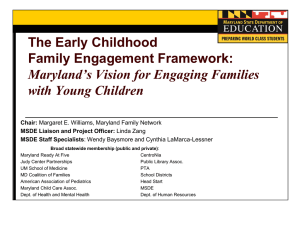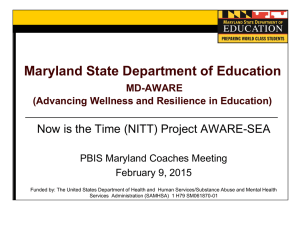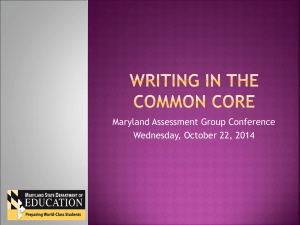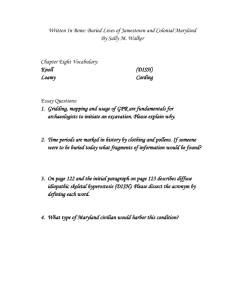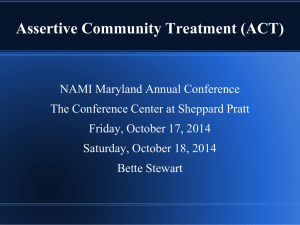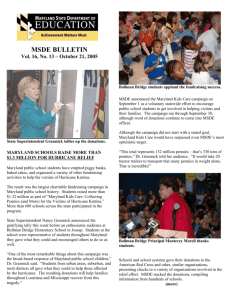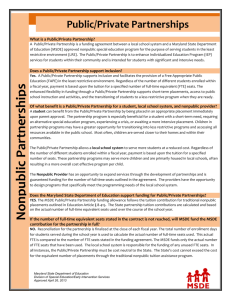Parent Resouces - Maryland State Education Association
advertisement
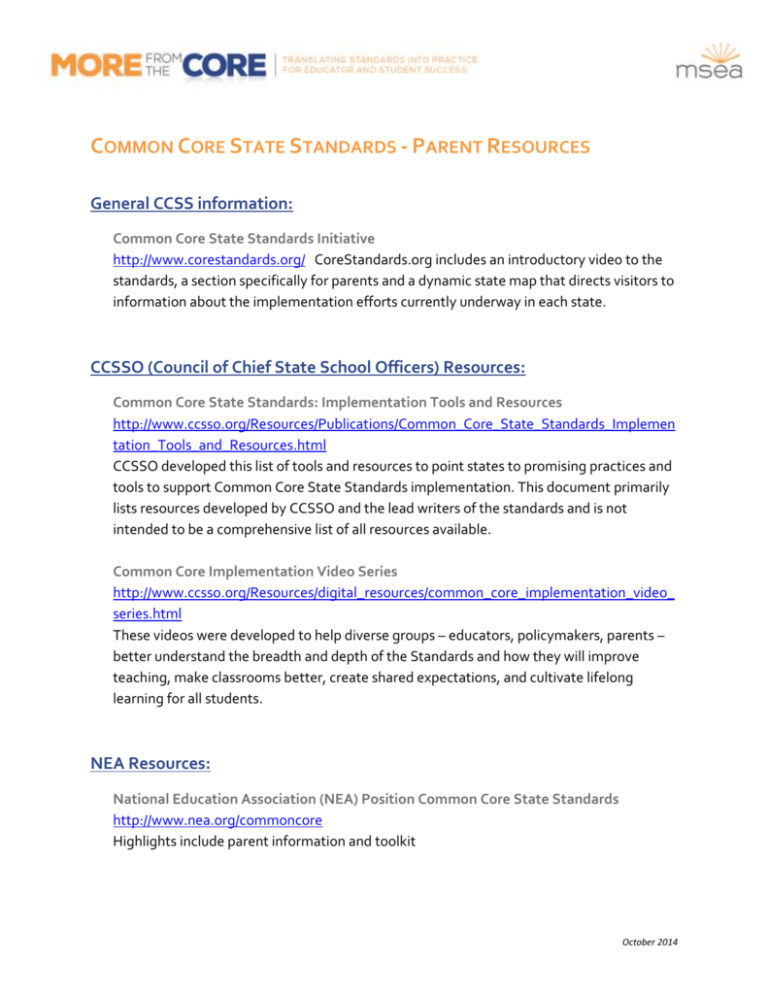
COMMON CORE STATE STANDARDS - PARENT RESOURCES General CCSS information: Common Core State Standards Initiative http://www.corestandards.org/ CoreStandards.org includes an introductory video to the standards, a section specifically for parents and a dynamic state map that directs visitors to information about the implementation efforts currently underway in each state. CCSSO (Council of Chief State School Officers) Resources: Common Core State Standards: Implementation Tools and Resources http://www.ccsso.org/Resources/Publications/Common_Core_State_Standards_Implemen tation_Tools_and_Resources.html CCSSO developed this list of tools and resources to point states to promising practices and tools to support Common Core State Standards implementation. This document primarily lists resources developed by CCSSO and the lead writers of the standards and is not intended to be a comprehensive list of all resources available. Common Core Implementation Video Series http://www.ccsso.org/Resources/digital_resources/common_core_implementation_video_ series.html These videos were developed to help diverse groups – educators, policymakers, parents – better understand the breadth and depth of the Standards and how they will improve teaching, make classrooms better, create shared expectations, and cultivate lifelong learning for all students. NEA Resources: National Education Association (NEA) Position Common Core State Standards http://www.nea.org/commoncore Highlights include parent information and toolkit October 2014 MSDE Resources: Maryland Race to the Top (RTTT) http://marylandpublicschools.org/MSDE/programs/race_to_the_top/ The RTTT program is aimed at boosting student achievement, reducing gaps in achievement among student subgroups, turning around struggling schools, and improving the teaching profession. Maryland Common Core State Standards http://marylandpublicschools.org/MSDE/programs/ccss/ The Common Core State Standards initiative is a state-led effort coordinated by the National Governor's Association and the Council of Chief State School Officers. These rigorous education standards establish a set of shared goals and expectations for what students should understand and be able to do in grades K-12 in order to be prepared for success in college and the workplace. Maryland Classroom, a Publication from the Maryland State Department of Education http://msde.state.md.us/mdclassroom/vol17_no3_052012.pdf Focus on Transition: The New Curriculum, Assessments, and Educator Evaluations. School Improvement in Maryland Resources: Maryland Common Core Curriculum Frameworks http://mdk12.org/instruction/commoncore/index.html Schools across the State in 2013-14 have implemented Maryland's College and CareerReady Standards. These standards incorporate the Common Core State Standards. Educator Effectiveness Academies http://mdk12.org/instruction//academies/index.html As part of the Race to the Top grant, MSDE held 11 regional Educator Effectiveness Academies during the summer of 2011 and 10 academies during the summer of 2012. The purpose of the academies was to provide professional development on Maryland's new reform initiatives to principals and teachers from each of Maryland's 1,600 schools. October 2014 Achieve the Core Resource: Parent and Community Resources: Sample presentations, grade level parent guides and videos http://achievethecore.org/dashboard/409/search/3/1/0/1/2/3/4/5/6/7/8/9/10/11/12%29 Resources about the Common Core for parents and the community. Other Resources: PARCC Model Content Frameworks http://parcconline.org/parcc-model-content-frameworks The Model Content Frameworks are neither a curriculum nor a replacement to the standards. Rather, they ought to be used as a companion to the standards, and as a lens through which to analyze and build local curricula. Parents' Guides to Student Success http://pta.org/4446.htm In Spanish/Guía en español http://www.pta.org/content.cfm?ItemNumber=2909#esp Created for grades K-8 high school English language arts/literacy and mathematics the guides provide clear, consistent expectations for what students should be learning at each grade in order to be prepared for college and career. October 2014
